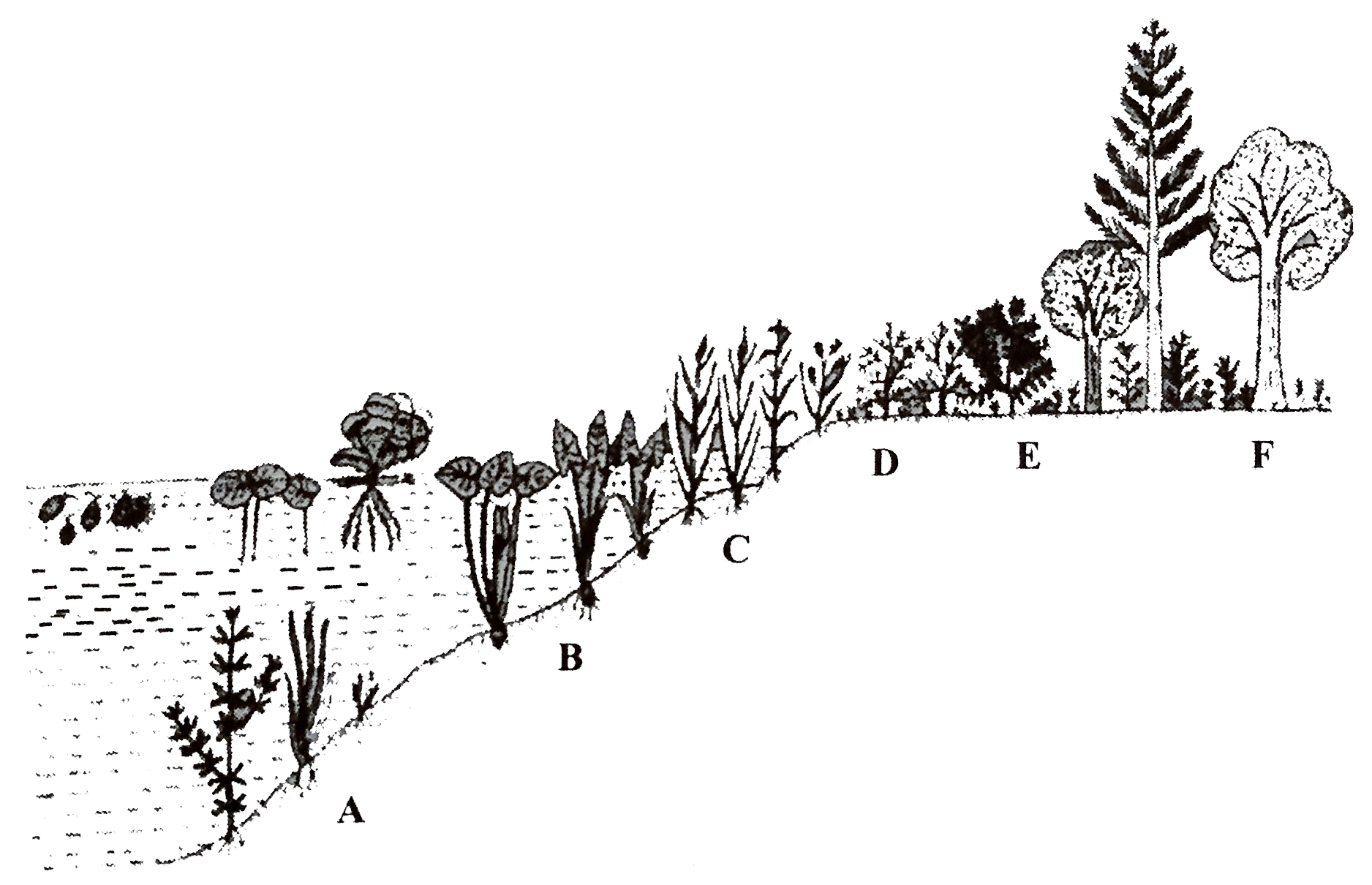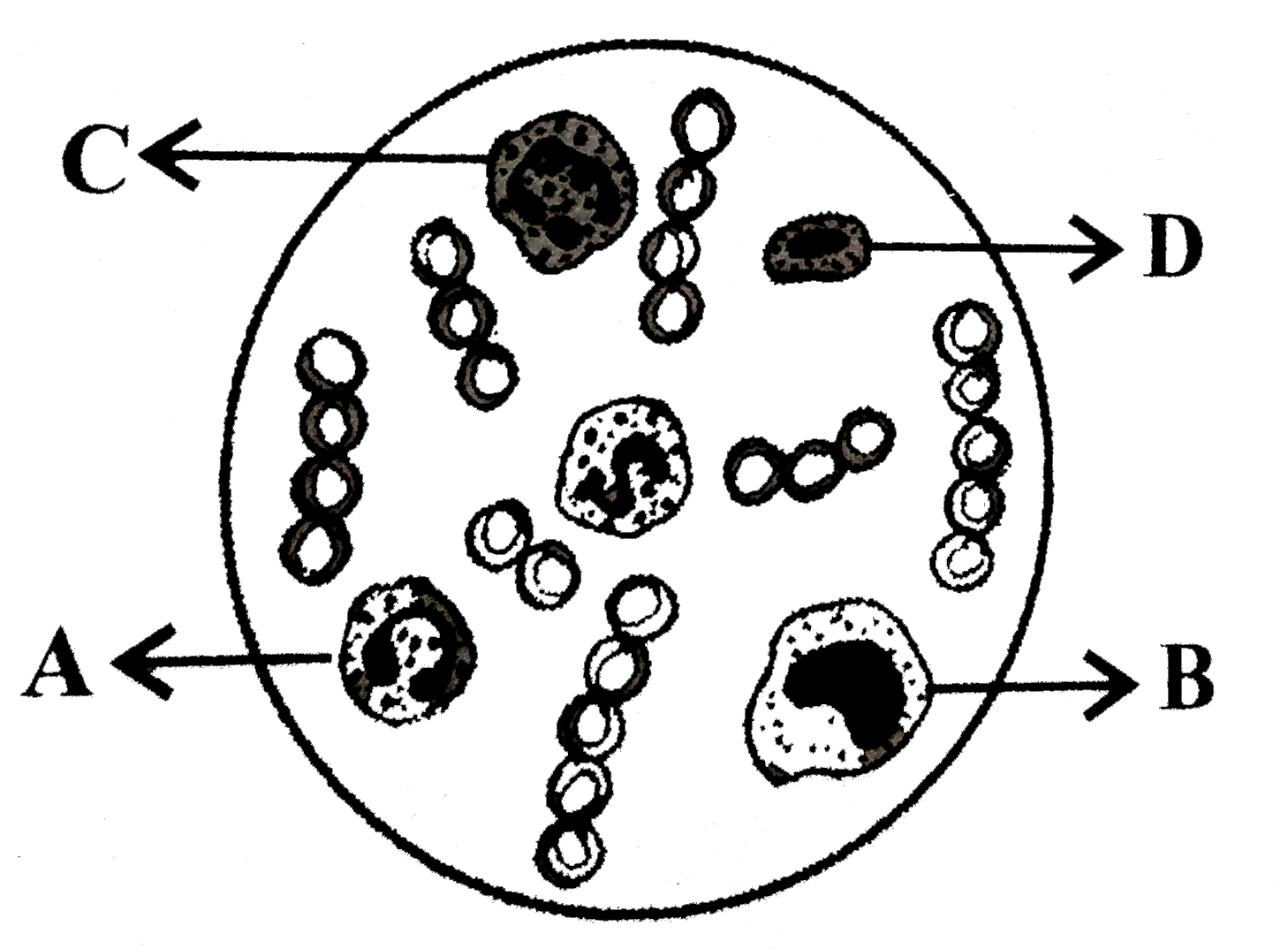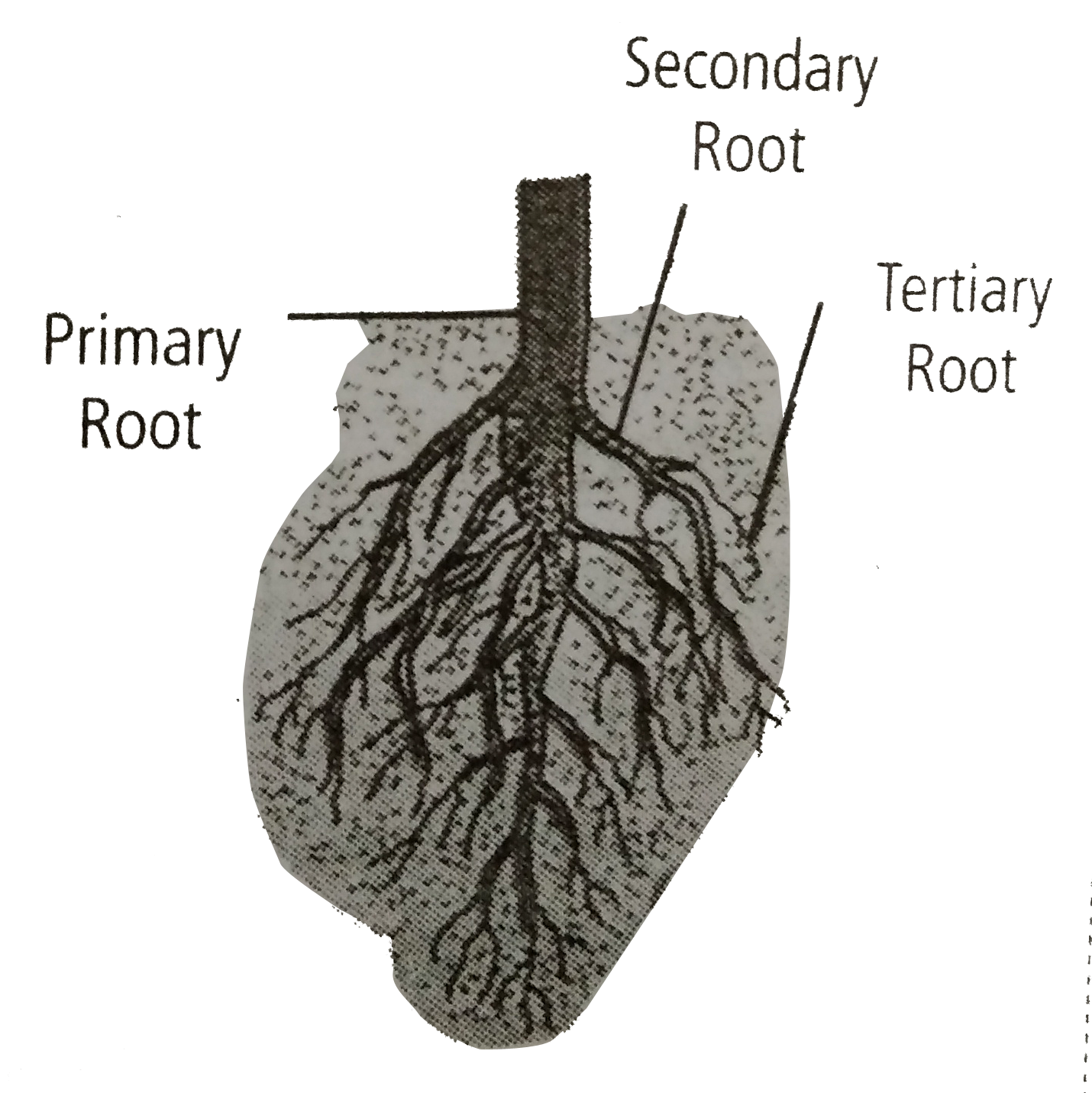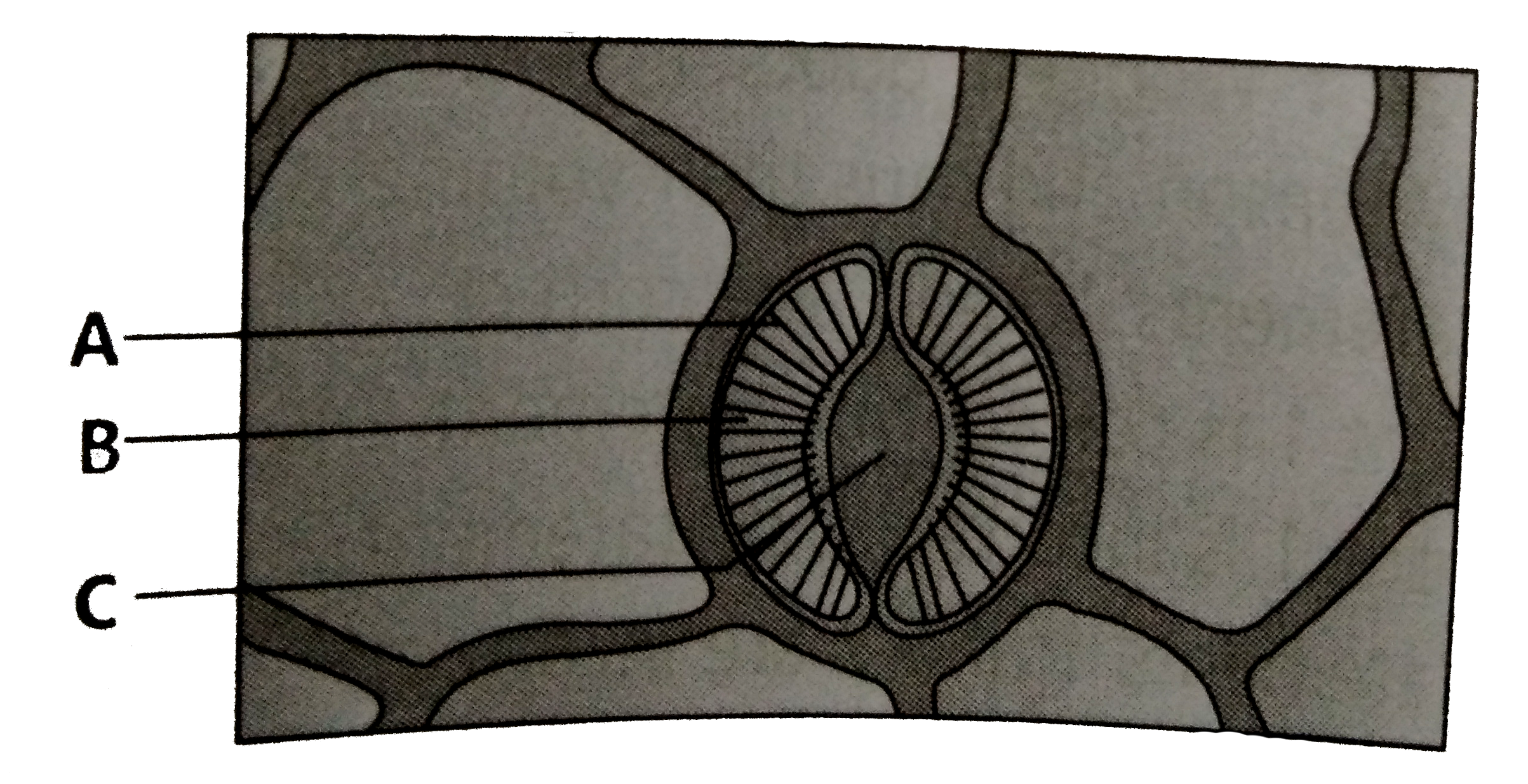In the given figure A,B,C,D,E and F represent some stages of hydrosere, Select the correct statement regarding these.

A
Hydrilla and Potamogeton occur in stage A,
B
Phragmites and Typha occurs in stage C, Carex and Cyperus occur in stage D.
C
Alinus and Populus occur in stage E, Accer and Quercus occur in stage F.
D
all of these.
Video Solution
Text Solution
The correct Answer is:D
In the given figure, A represents submerged stage (e.g., Hydrilla, Potamogeton, Vallisneria, etc.) B represents floating leaved anchored plant stage (e.g., Nymphaea, Nelumbo, Pistia, etc.), C represents reed-swamp stage (e.g., Phragmites, Typha, Scirpus, Sagittaria, etc.), Drepresents marsh-meadow stage (e.g., Carex, Cyperus, Juncus, etc.), E represents woodland stage (e.g., Salix, Populus, Alnus, etc.) and F represents the climax community of forest (e.g., Acer, Quercus, Ulmus, etc.).
|
Topper's Solved these Questions
- ECOSYSTEMBOOK - NCERT FINGERTPS ENGLISHCHAPTER - ECOSYSTEMEXERCISE - Ecosystem
140 Videos
- BIOTECHNOLOGY AND ITS APPLICATIONBOOK - NCERT FINGERTPS ENGLISHCHAPTER - BIOTECHNOLOGY AND ITS APPLICATIONEXERCISE - Biotechnology And Its Application
137 Videos
- ENVIRONMENTAL ISSUESBOOK - NCERT FINGERTPS ENGLISHCHAPTER - ENVIRONMENTAL ISSUESEXERCISE - Environmental Issues
142 Videos
Similar Questions
Knowledge Check
Select the correct option regarding the given figure
 AD is eosinophil which is found more in asthama patientsBB is lymphocyte which helps in blood clottingCC is neutrophil which is phagocytic in natureDA is monocyte which release histamine, serotonin and heparin
AD is eosinophil which is found more in asthama patientsBB is lymphocyte which helps in blood clottingCC is neutrophil which is phagocytic in natureDA is monocyte which release histamine, serotonin and heparinRefer to the given figure and select the incorrect statements regarding this.
 Athis type of root system develops from radicle of embryo.BLateral roots arising from the main root are exogenous in origin.CRootlets are the ultimate root branches that bear root hair for absorption.DSecondary and tertiary roots are borne in acropetal succession.
Athis type of root system develops from radicle of embryo.BLateral roots arising from the main root are exogenous in origin.CRootlets are the ultimate root branches that bear root hair for absorption.DSecondary and tertiary roots are borne in acropetal succession.Refer to the given figure

Select the correct statement regarding the labelled parts A−CAThe inner wall of B towards C is thick and elastic.BThe opening and closing of the stomata is due to change in the turgidity of BCThe opening of the stoma is aided due to the orientation of A in the cell walls of B.Dall of these.
Select the correct statement regarding heterocysts.
View SolutionSelect the correct statements regarding parthenocarpy.
View SolutionSelect the correct statement regarding reproduction.
View SolutionSelect correct statement(s) regarding given complexes:
View SolutionSelect the correct option regarding a, b and c

View Solution
